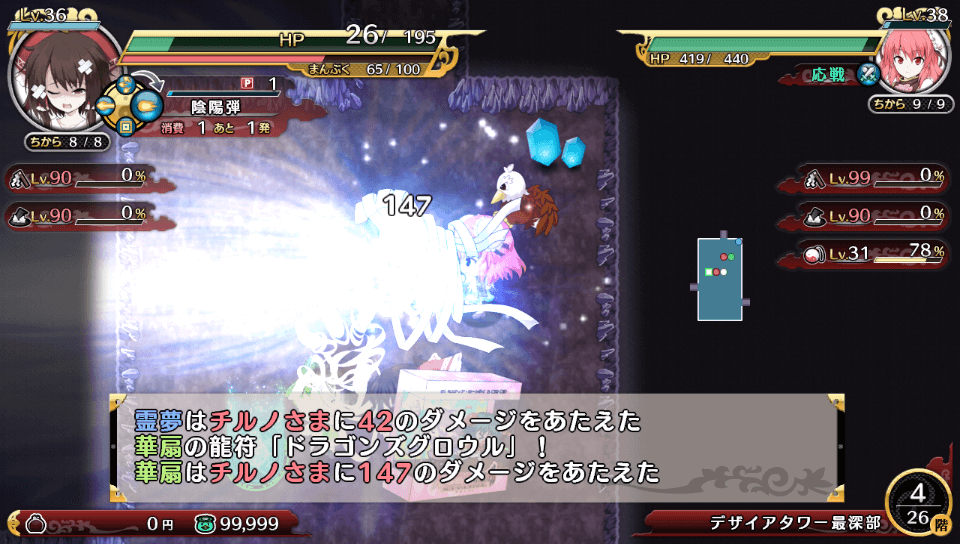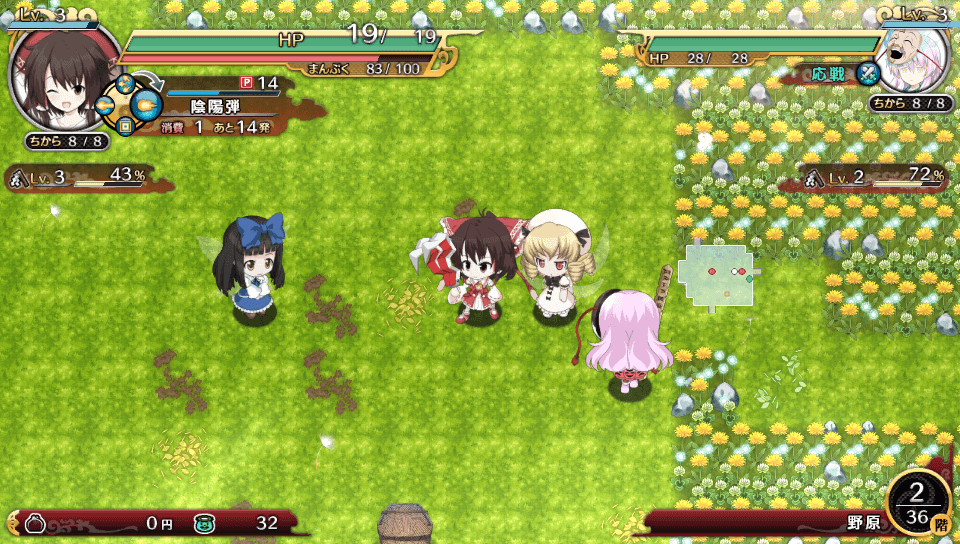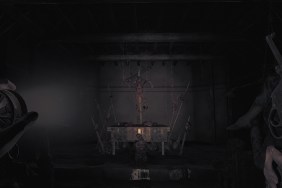Ever since I played Dragon Crystal for the Sega Game Gear, I’ve been a fan of dungeon crawlers. Even if runs often end up in failure more often than not, a good roguelike will simply keep me coming back for more. In the 20+ years since then the genre has evolved substantially, and the latest game to have players picking up items & battling a never ending supply of baddies inside a dungeon is Touhou Genso Wanderer.
Unlike a lot of dungeon crawlers, there’s a pretty big focus on story in Touhou Genso Wanderer. The game revolves around Reimu Hakurei, a shrine maiden that gets sucked into an adventure after accidentally triggering an object called the Golden Sphere. Nothing good comes from this, and now Reimu (with the help from some friends) has to set things right again. While the narrative starts off promising enough, the story quickly becomes a bore due to an overabundance of dialogue.
I’ve rarely seen a game say so little with so many lines of dialogue that wasn’t a Neptunia title (although at least those have more personality in its writing). Instead of simply introducing a mechanic (such as the game’s crafting system), the player will instead have to sit through a long dialogue sequence filled with hundreds of words just to get to a point that could’ve been summed up in a sentence or two. It’s really too bad that the plot is overly wordy, as it slows down scenes to a slug’s pace, and made me dread seeing characters that were otherwise likable beyond their constant talking.
A Solid Challenge
After the characters finished yapping, I found a dungeon crawler that got the fundamentals right. While there isn’t anything really surprising here besides a crafting system that uses an in-game currency called Nito points (this helps a lot when you run out of items, so don’t forget to use it), there’s something to be said about a traditional style crawler that is just fun to play. Players make their way from floor to floor taking out baddies (that always happen to be cute chibi-style girls), picking up items, and juggling their inventory because these games never give you a big enough bag. My only big complaint about the core gameplay is that the camera is way too zoomed in (it seems like the Vita was the main platform here), which means off-screen enemies can damage the player. It’s not a huge deal, but it’s definitely frustrating.
Special attacks come in the forms of spells called Danmakus, which are projectiles that use energy to use. These attacks are very useful, as most of the combat requires Reimu to be directly next to the character she’s fighting. Using Danmakus properly can be the difference between a successful battle and having to start over, and there’s a good variety of different skills (each takes up varying amounts of energy) to use.
Since the dungeons are very long (the very first one you tackle after the tutorial is over 30 floors long), there are various rest stops along the way. These will let the player spend money on rest, food (there’s a stamina system like other titles), and other items. Since the game is a grind by design, a lot of playthroughs will essentially be strictly to find better items, in an attempt to make one run in the future truly count. When that run is successful, then the game is highly satisfying, when it fails, it’s demoralizing. That’s the greatness of dungeon crawlers in an essence, and it definitely shows here.
Randomness
One of the quirks of dungeon crawlers that has always been divisive is the usage of random elements. While I believe it’s an essential part of the genre due to how repetitive it would be if the player had to constantly do the same stages, there’s no denying that poor luck can make these titles more frustrating than fun at times. This is the one big area where Touhou Genso Wanderer struggles, as the difficulty can really be all over the place.
Most of my deaths in the game came from instances when I’d be swarmed with enemies. It didn’t happen often, but when you’ve got to climb over 30 levels in order to get to a final boss, it’s bound to happen at some point. Getting overcrowded is almost a recipe for instant death unless the player has certain items (such as scrolls that attack an entire room), and even the best of players will be looking at a game over screen if they get a few bad rolls on back-to-back floors. Sadly, that bad luck results in losing a half-hour or more of progress.
Thankfully, Touhou Genso Wanderer is more kind than more hardcore crawlers (such as Shiren) as players don’t lose everything when they die. While their level is reset (which means players will have to clear out each floor before they move on unless they want to be under-powered), they keep all of their weapons, charms, and items. Since weapons and armor can be leveled up and made more powerful, this allows subsequent runs to be easier than the previous one. Victory is always within grasp here, even if the random element may make you feel like the game hates you at times.
Flawed, But Fun
When you consider how great a time it has been to be a fan of dungeon crawlers lately, it becomes hard to get too jazzed about an enjoyable one that doesn’t do anything truly special. From first-person titles like Etrian Odyssey 2 Untold and Dungeon Travelers 2 to more traditional titles like Shiren the Wanderer, there’s been no shortage of ways to get your fix. All of these are better titles than Touhou‘s attempt at the genre, even if Wanderer isn’t a failure by any means.
Ultimately, Touhou Genso Wanderer is a solid, if unspectacular, dungeon crawler. It’s in a strange area in-between accessible titles like Pokémon Mystery Dungeon and ones built specifically for hardcore players. While it’s not as good as the top of its class, there’s still some solid fun (and challenge) to be had if you’re looking for something new.
Review code for Touhou Genso Wanderer provided by publisher. Reviewed on PS4 Pro. For more information on scoring, please read our Review Policy here.
-
Danmakus are fun to use
-
Cool crafting system
-
Keep items after death
-
Difficulty feels uneven
-
Boring story
-
Camera is too zoomed in
Touhou Genso Wanderer
-
Touhou Genso Wanderer
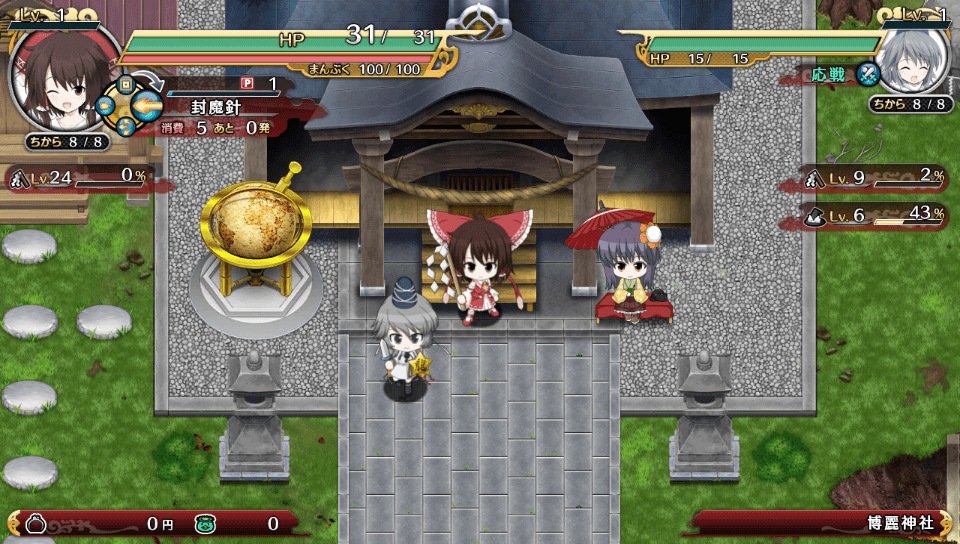
-
Touhou Genso Wanderer
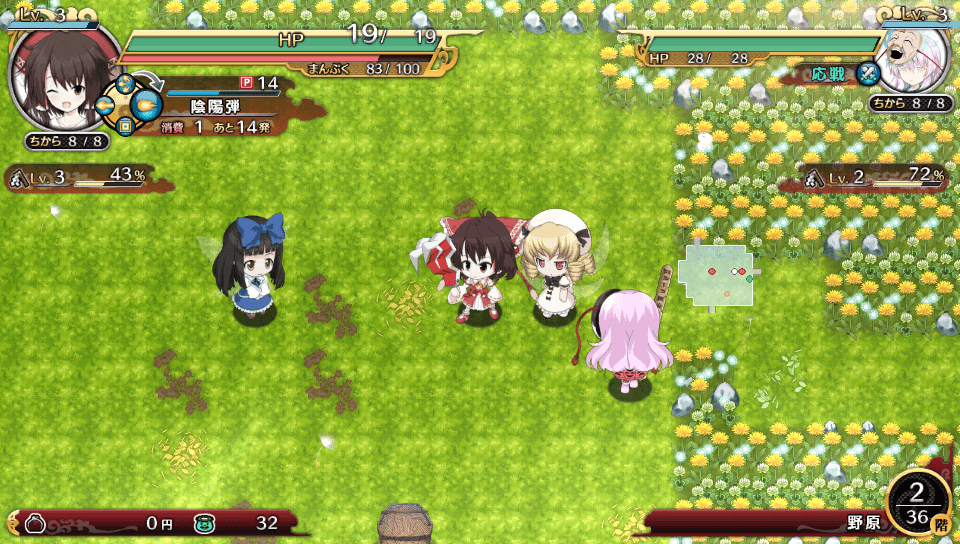
-
Touhou Genso Wanderer
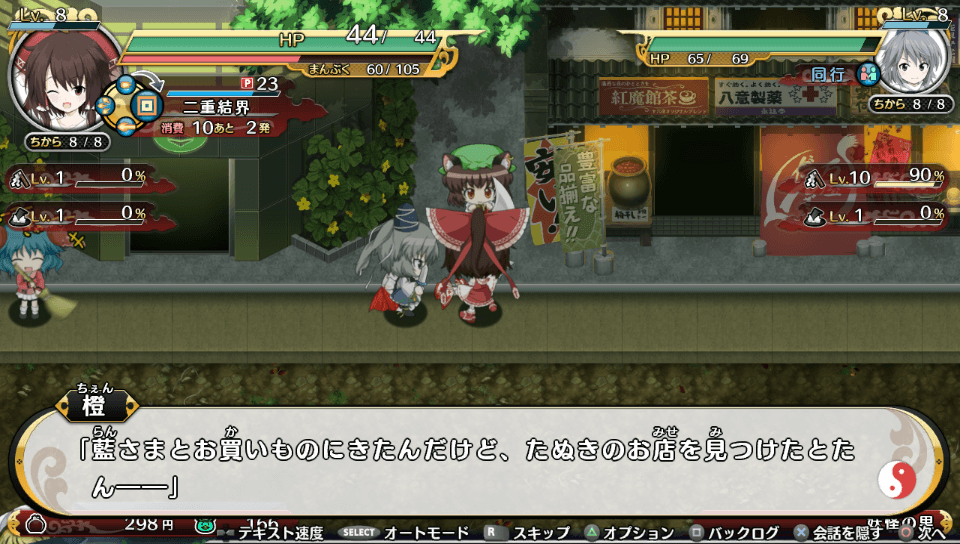
-
Touhou Genso Wanderer
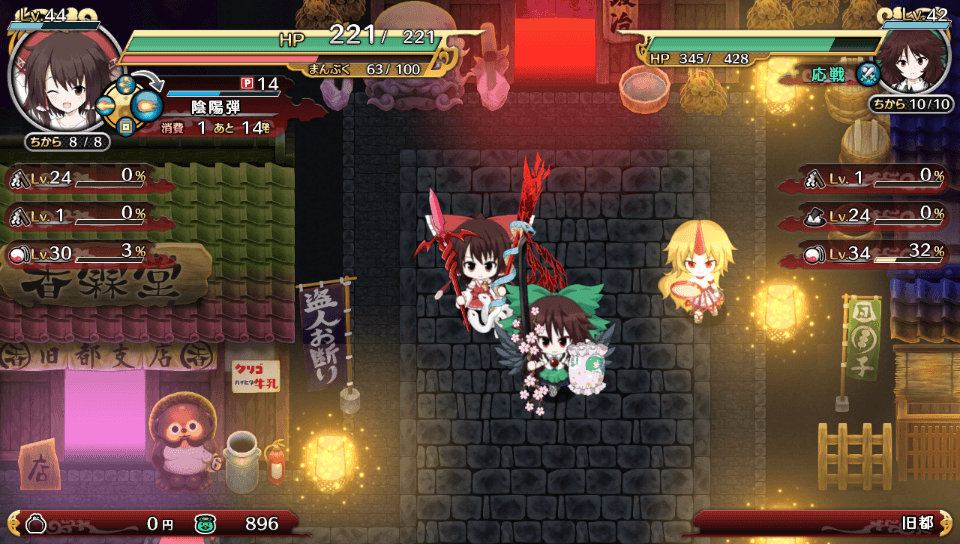
-
Touhou Genso Wanderer
